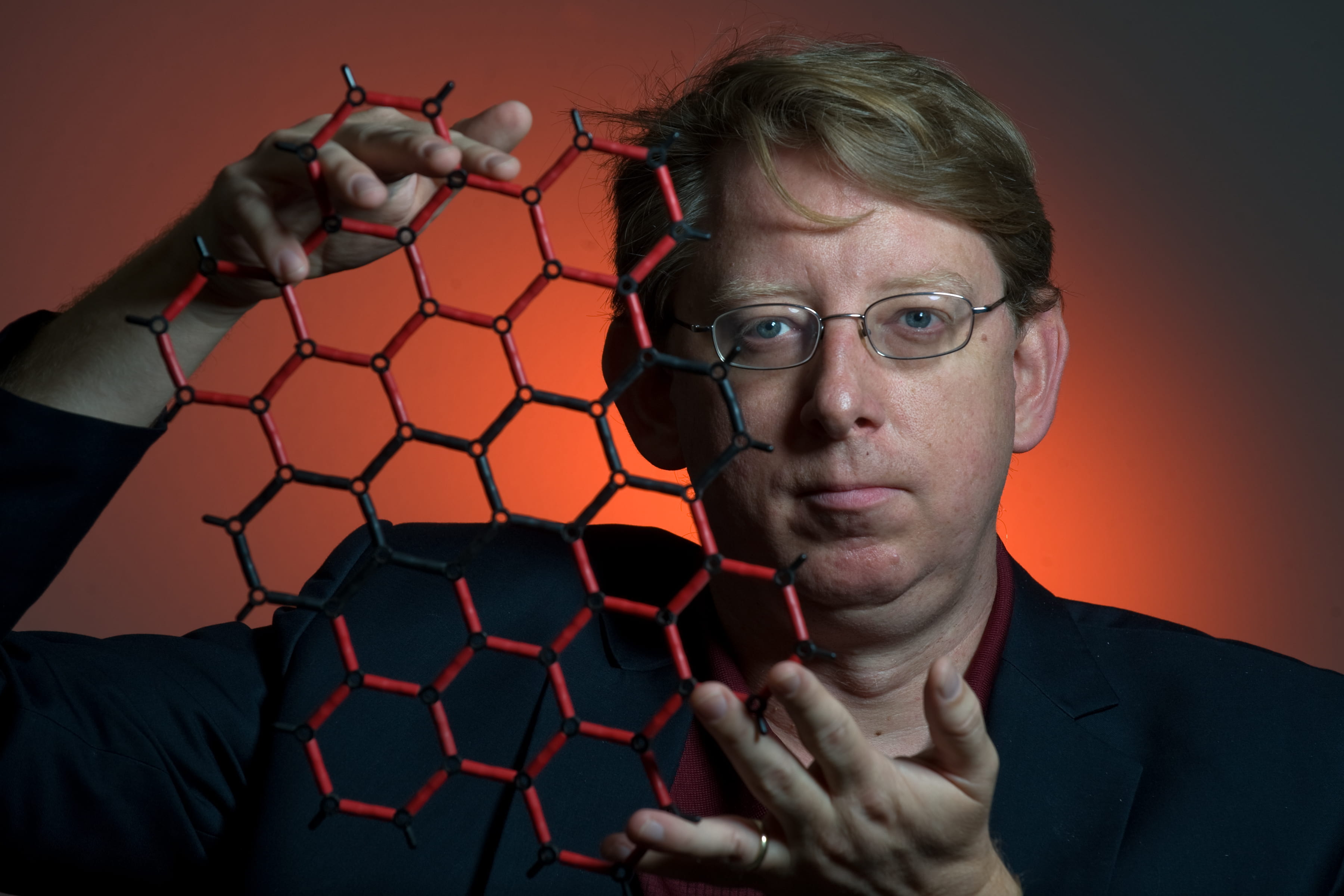Doctor back from Iraq
Transplant surgeon Dr. Clarence E. Foster III recently traded the convenience of UC Irvine Medical Center’s modern operating rooms for the treacherous and harsh environs of war-torn Iraq, where he performed life-saving trauma surgery on injured soldiers and civilians and cared for the health of detainees.

Transplant surgeon Dr. Clarence E. Foster III recently traded the convenience of UC Irvine Medical Center’s modern operating rooms for the treacherous and harsh environs of war-torn Iraq, where he performed life-saving trauma surgery on injured soldiers and civilians and cared for the health of detainees.
It was quite a switch for Foster, a member of the U.S. Army Reserve since 1990, who was called away from his duties as UC Irvine Healthcare’s chief of Kidney & Pancreas Transplantation Services in late March to serve a three-month mobilization in Iraq.
“I had some trepidation about it before I left,” Foster said. “It was a more intense, life-awakening experience than I ever imagined.”
Foster, a major in the Army Reserves, was deployed first to Camp Delta near Al Kut, about 20 miles from the Iranian border. He was part of a “forward surgical team,” the first line of medical care for soldiers and civilians injured by burns, gunfire, roadside bombs and other improvised explosive devices.
Operating under less than ideal conditions, he and fellow surgeons performed immediate surgery or resuscitation to stabilize the injured before transferring them to combat support hospitals for further care.
“This was all emergency surgery in a very austere environment,” Foster said. “There were no CT scans, no complex testing capabilities, none of the equipment we are used to here when we operate.”
After two months at Camp Delta, Foster was transferred to Camp Bucca, a detainee camp in the southernmost province of Iraq. The camp holds about 16,000 detainees, and Foster performed general elective surgeries – including hernia repairs, appendectomies and gall bladder removals – in more sophisticated facilities.
Foster has been a highly specialized transplant surgeon for the past 11 years, but his skills in general and trauma surgery were called upon during his Iraq assignment. Transplant surgery involves extensive planning and preparation, while trauma surgery requires immediate action. At Camp Delta, where patients suffered from gunshot and mortar wounds, he performed exploratory abdominal surgeries to identify damaged organs and stop internal bleeding. Despite stark conditions, he said, “The soldiers received excellent care.”
He developed tremendous respect for soldiers who, he said, “are able to do incredible things and perform at high levels with very little in the way of comfort.”
In Iraq, Foster endured blazing heat that reached upward of 120 degrees and several horrific sandstorms. He said he felt most in danger not in the camps but while traveling the roads because of possible IEDs and other perils.
The hardest part of his deployment, he said, was separation from family. He spent his first wedding anniversary thousands of miles from his wife, Karen. And although he told his medical center colleagues not to send him anything, he nevertheless was thrilled to receive a bundle of letters. “That was really uplifting,” he said.
Back at UCI since late July, Foster has a new, heightened awareness and appreciation of the U.S. and Orange County. His deployment gave him a glimpse of everyday medical care in Iraq, as he and other Army doctors helped teach and train the local doctors. “They don’t have the medical facilities, services and technology we take for granted in the United States,” he said. “I have a new appreciation for the healthcare we have here.”
